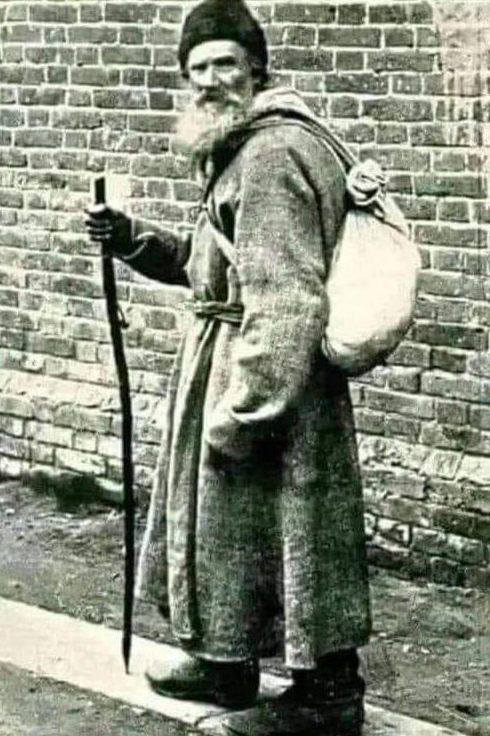He is not what many might assume at first glance — not a beggar, not a homeless wanderer. This man you see, stripped of worldly excess, is Leo Tolstoy, the Russian novelist, philosopher, and moral visionary whose words continue to echo through time.
Early Life and Awakening
Leo Nikolayevich Tolstoy was born on September 9, 1828, into privilege. But his story does not end with privilege — it evolves into something far more radical. Raised in the Russian aristocracy, Tolstoy inherited estates, lived among the upper classes, educated, well-connected. Yet as he matured, the disparity between his surroundings and his conscience began to gnaw at him.
In his novels War and Peace and Anna Karenina, among others, Tolstoy peels back the layers of human motives: power, love, jealousy, pride, compassion. He shows us people in their moments of glory, failure, cruelty, and redemption. But the most dramatic transformation happened in his own life: when he began to believe that literature alone was not enough — that living truthfully meant living simply, sharing, giving.

The Choice of Simplicity
At some point, Tolstoy made a choice that startled those around him. He sold off possessions. He rejected the trappings of wealth. He gave away his luxuries. Not in despair, not as a public stunt, but as a living renunciation of what he believed was a false security. In place of fine clothes he wore simple garments; instead of grand dining halls, he preferred modest meals; instead of idle pleasures, he dedicated himself to action rooted in ethics.
Tolstoy believed that faith isn’t what one says, but what one does. He once said, “Don’t tell me about your religion, let me see your religion in your actions.” To him, the highest test of humanity was compassion — not merely feeling, but acting. “If you feel pain, you are alive. But if you feel the pain of others, you’re human,” he taught. The suffering of others ceased to be abstract for him; it became a force that would shape how he lived every day.
Beyond the Pen: Philosophy, Reform, Influence
Tolstoy’s pen remains immortal. His novels captured the breadth of human experience: war, peace, love, betrayal, courage, despair. But writing was only part of his mission. He believed in social reform, nonviolent resistance, justice for the poor and marginalized. His convictions influenced towering figures — Gandhi drew from his belief in passive resistance; Martin Luther King Jr. echoed his faith in nonviolence and moral integrity.
Tolstoy challenged the institutions of his day — not as one who wanted destruction, but as one who demanded honesty, action, humility. He argued that true faith always walks beside good deeds; that the greatest wealth is moral wealth. He saw greatness not in titles or estates, but in the hands extended to help, in lives shared rather than isolated.
What It Means Today
We live in a world that often measures success by possessions, status, image. But Tolstoy’s life invites a very different question: What do we carry inside our souls, and how do we show it? Suppose someone sold everything — not because they lost it, but because they wanted to give to those who need. Suppose someone chose to live in simplicity so that others might have more. What would change?
Tolstoy walked through life with this question as a guide. He refused to settle for a faith that is only spoken; for morality that is only written. He insisted that ours should be a living faith, a practice of kindness and courage, a daily choosing of what is right.
Legacy of Leo Tolstoy
Tolstoy died on November 20, 1910, but his impact endures. His writings continue to be read, his philosophy continues to challenge and comfort. We remember him not merely for the novels he left behind, but for the radical coherence between his convictions and his actions.
When you see a man with tattered clothes, or modest means — maybe someone you’re tempted to dismiss — remember Tolstoy. Because sometimes, what looks like deprivation is chosen abundance. And sometimes, what looks like nothing is everything.